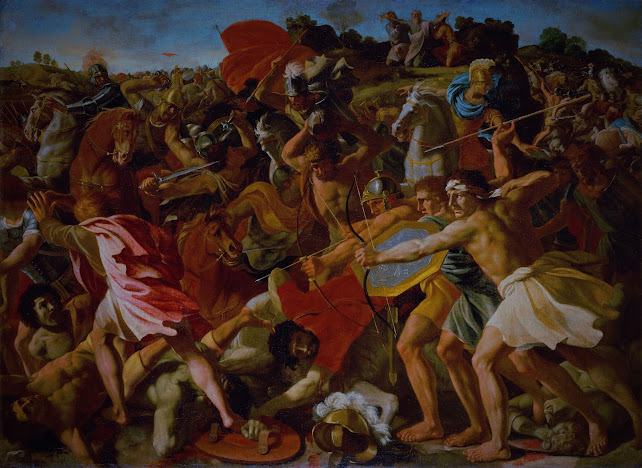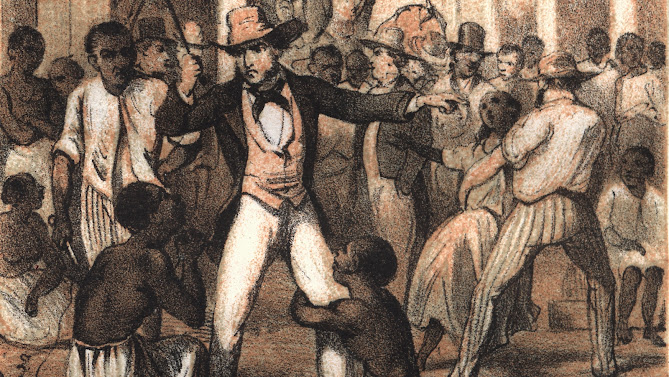Argument 1:
God has committed what we, in contemporary society, would consider to be genocide. There are 5 stories we can reference. The first would be the story of Noah's flood in Genesis 6-8. The second would be the destruction of the cities of Sodom and Gomorrah in Genesis 18-19. The third would be the Egyptian firstborn sons during the Passover in Exodus 11-12. The fourth would be killing of the Canaanites under Moses and Joshua in Numbers 21:2-3, Deuteronomy 20:17, Joshua 6:17 and 21. The fifth would be the Amalekites being annihilated by Saul in 1 Samuel 15.
Argument 2:
God is good, He is supreme and pure good, is an argument made by Thomas Aquinas in his book Summa Theologiae. If we are to believe that, given the fact Thomas Aquinas is a prominent authority, we can begin to extrapolate. If God is pure good, then it must also be necessary that all his actions must be pure good. An entity that is pure good cannot do something other than good and cannot do something that is bad or wrong. Therefore, the actions of God are good and therefore the actions of God, in reference to multiple "genocides" of those who rejected him, must also be good. The action of "genocide" of those who are Godless is therefore good.
Argument 3:
We are told to hate what is evil in Psalm 26, Psalm 97, Psalms 119, Psalms 4, Psalms 31, Proverbs 8, Ecclesiastes 3 and Romans 12. Evil, in this world, is a purely human potential. Therefore, we are to hate what is characteristically human. What is evil? An argument can be made that the rejection of God, an entity that is pure good, is evil. It is also mentioned in the Bible that the rejection of God is an unforgiveable sin in Mark 3. Therefore, we can conclude that the rejection of God is an objective evil. Is that why God destroyed those who rejected him? That seems to be the case.
Argument 4:
Catholics place a tremendous amount of value on the tradition of the Church and the Church Fathers. We can use the example of the Catholic Church and other Catholic Institutions to further justify the argument.
The first and most popular case would be the Spanish Inquisition which executed between 3,000 and 5,000 people. Many would argue that this shouldn't be considered genocide, however, the definition of genocide would support my argument. A genocide is defined as the mass killing of a specific group of people, in this case heretics and unbelievers. Furthermore, in the Moriori genocide, 1900 people were killed, in the Selknam genocide 2500-4000 people were killed, in the Haiti massacre 3000-5000 people were killed, in the genocide of aboriginal Tasmanians 400-1000 people were killed. If these killings, where a fewer amount of people were killed, are considered to be genocide, therefore the killings by the Spanish Inquisition must also be a genocide. In conclusion, the deliberate mass killing of a specific group of people by the Spanish Inquisition is genocide.
The second and relatively unknown example of genocide by the Christians would be that of the Greeks by the Byzantines. It is estimated that between the 4th and 10th century at least 20 million Greeks were exterminated. Ammianus Marcellinus wrote “The bishop of Alexandria Georgios and his gang went through the streets of Alexandria cutting up people and setting fire to everything. From the remotest areas of the Roman Empire countless Greeks of all ages and social backgrounds were dragged chained. Many of these died on the way or in the prisons of different places. Those that managed to survive ended up in Skythopolis, a remote town in Palestine, where instruments of torture and death were set up.” The Christian historian Sozomen, in his book Ecclesiastical History, wrote that almost all Greeks were ordered to be killed, some by sword and some by fire. All the philosophers and those wearing the clothing of philosophers were also killed.
The third example would the Spanish Reconquista which began in the early 8th century and lasted for nearly 800 years, accounting for 7 million dead. The Reconquista was a brutal conflict fueled in part by devotion to Christianity -- not just a war between kingdoms but a crusade against infidels. In Muslim controlled Iberia, Christians and Jews had significant religious freedom. The Christian rulers to the north did not return the favor. The rulers of Spain's kingdoms found that their shared Christianity could unite them and set them apart from the Muslims to the south. The men who fought in the Reconquista were convinced of their superiority to their enemies who had rejected Christianity, and they developed rules of war based on that superiority -- including the right to enslave the people they conquered. Once Spain was reconquered, Muslims and Jews were forced to convert to Christianity or be expelled from Spain. In the capture of Tripoli by the Spanish forces, the Spanish lost 300 men while the inhabitants lost between 3,000 and 5,000 killed and another 5,000–6,000 were carried off as slaves.
The fourth example would be the Albigensian Crusade which was a military and ideological campaign initiated by Pope Innocent III to eliminate Catharism in Languedoc, southern France. The Crusade was prosecuted primarily by the French crown and promptly took on a political aspect. It resulted in the significant reduction of practicing Cathars and a realignment of the County of Toulouse with the French crown. At least 200,000 to at most 1,000,000 Cathars were killed.
Argument 5:
God has given permission to the state to kill as it deems appropriate. In Romans 13, God tells us that every person is to be subject to the governing authority, that the only authority is God and those that exist in positions of authority have been instituted by God. We go onto read how those who resist such authority will incur judgement, that rulers are to be a terror to evil. Furthermore, we read that those who do evil are to be afraid because the ones in authority do not bear the sword in vain because they are God's ministers and they are to execute wrath on those who do evil.
Source: https://www.biblegateway.com/passage/?search=Genesis%2018-19&version=NIV
Source: https://www.biblegateway.com/passage/?search=Exodus%2011-12&version=NIV
Source: https://www.biblegateway.com/passage/?search=Numbers%2021%3A2-3&version=NIV
Source: https://www.biblegateway.com/passage/?search=Psalm%20119&version=NIV
Source: https://www.biblegateway.com/passage/?search=Psalm%204&version=NIV
Source: https://www.biblegateway.com/passage/?search=Psalm%2031&version=NIV
Source: https://www.biblegateway.com/passage/?search=Proverbs%208&version=NIV
Source: https://www.biblegateway.com/passage/?search=Ecclesiastes%203&version=NIV
Source: https://www.biblegateway.com/passage/?search=Romans%2012&version=NIV
Source: https://www.biblegateway.com/passage/?search=Mark%203&version=NIV
Source: Tatz, Colin Martin; Higgins, Winton (2016). The Magnitude of Genocide
Source: Robertson, John M. (1902). A Short History of Christianity



Comments
Post a Comment